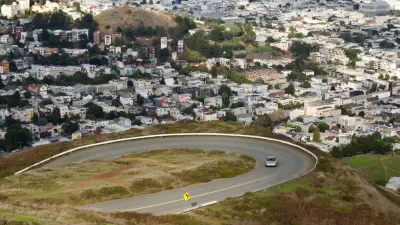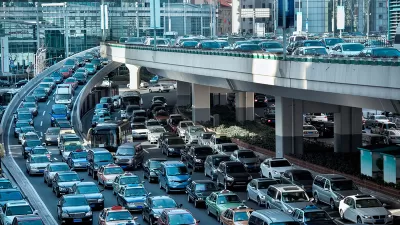Many advocates for new ways of thinking about places and streets argue for reduced use of cars as the dominant mode of transportation. A new study finds, however that poverty is improved when the poor have access to a car for transportation.
Emily Badger reports on a new study called "Driving to Opportunity" by researchers at the Urban Institute, the University of Maryland and UCLA. The studies followed families in ten cities that participated in two federal voucher programs, the Moving to Opportunity for Fair Housing program, and the Welfare to Work Voucher program, which provide access to “stable housing and high-quality neighborhoods.”
The key findings of the study, as explained by Badger: “The families with cars moved to neighborhoods with less poverty and were more likely to stay there. They lived in neighborhoods with less unemployment, higher median rents, more access to green space and lower levels of cancer risk. Controlling for other factors influencing their residential mobility, these families also lived by the end of the survey in neighborhoods with better-performing schools.”
The article gives many more details on the report, a thorough treatment of the many policy implications for the report, and considers the many possible causes for the findings, one of which is that transit service is rarely reliable enough to trust for getting to and from work on time. Badger also suggests the following rational policy proposal: “A more effective poverty reduction policy might consider that families need both decent housing and a way to get from that home in the morning to school and work and back again.”
FULL STORY: Why the poor need better access to cars

Planetizen Federal Action Tracker
A weekly monitor of how Trump’s orders and actions are impacting planners and planning in America.

Map: Where Senate Republicans Want to Sell Your Public Lands
For public land advocates, the Senate Republicans’ proposal to sell millions of acres of public land in the West is “the biggest fight of their careers.”

Restaurant Patios Were a Pandemic Win — Why Were They so Hard to Keep?
Social distancing requirements and changes in travel patterns prompted cities to pilot new uses for street and sidewalk space. Then it got complicated.

DC Area County Eliminates Bus Fares
Montgomery County joins a growing trend of making transit free.

Platform Pilsner: Vancouver Transit Agency Releases... a Beer?
TransLink will receive a portion of every sale of the four-pack.

Toronto Weighs Cheaper Transit, Parking Hikes for Major Events
Special event rates would take effect during large festivals, sports games and concerts to ‘discourage driving, manage congestion and free up space for transit.”
Urban Design for Planners 1: Software Tools
This six-course series explores essential urban design concepts using open source software and equips planners with the tools they need to participate fully in the urban design process.
Planning for Universal Design
Learn the tools for implementing Universal Design in planning regulations.
Heyer Gruel & Associates PA
JM Goldson LLC
Custer County Colorado
City of Camden Redevelopment Agency
City of Astoria
Transportation Research & Education Center (TREC) at Portland State University
Camden Redevelopment Agency
City of Claremont
Municipality of Princeton (NJ)




























